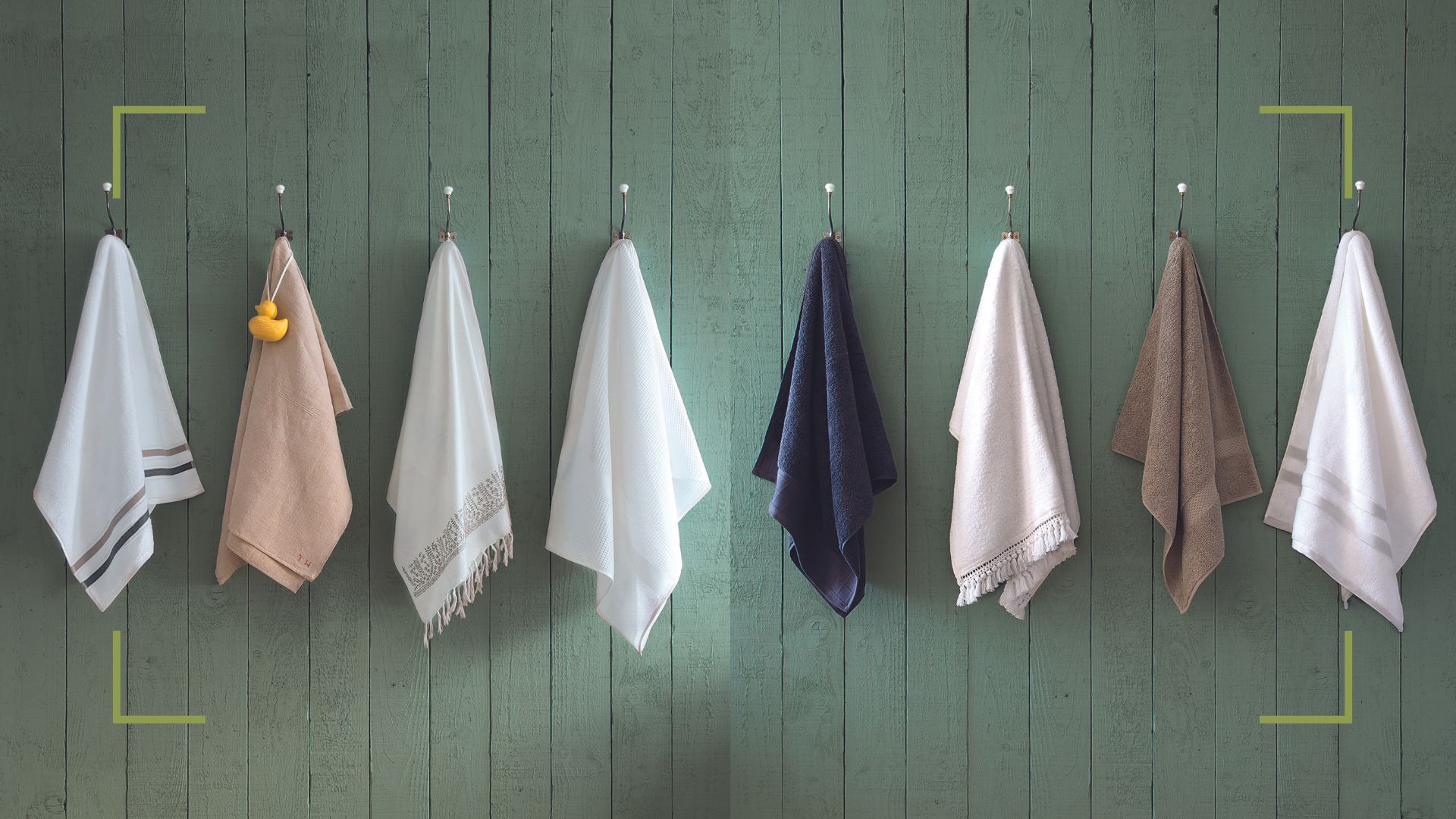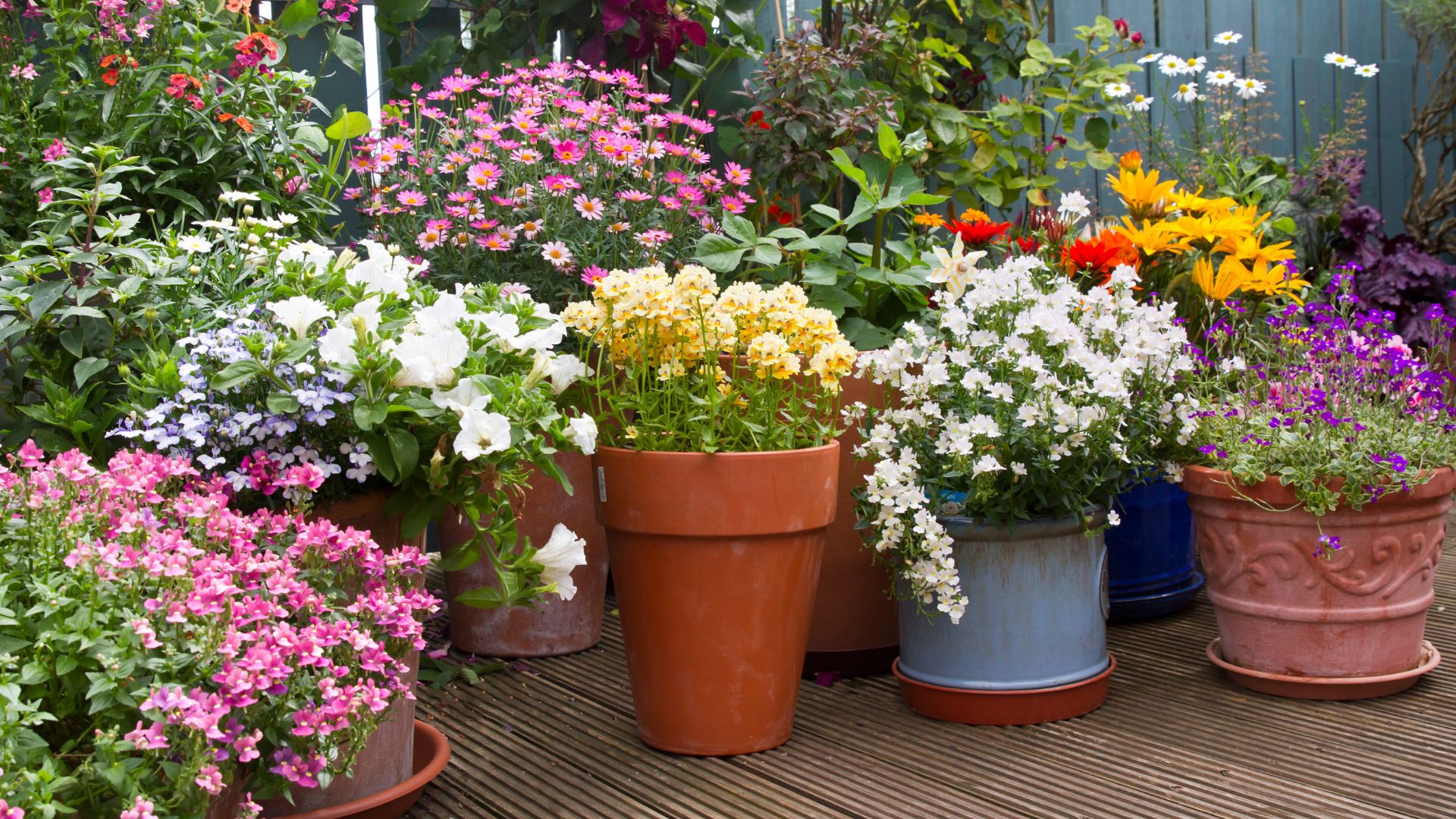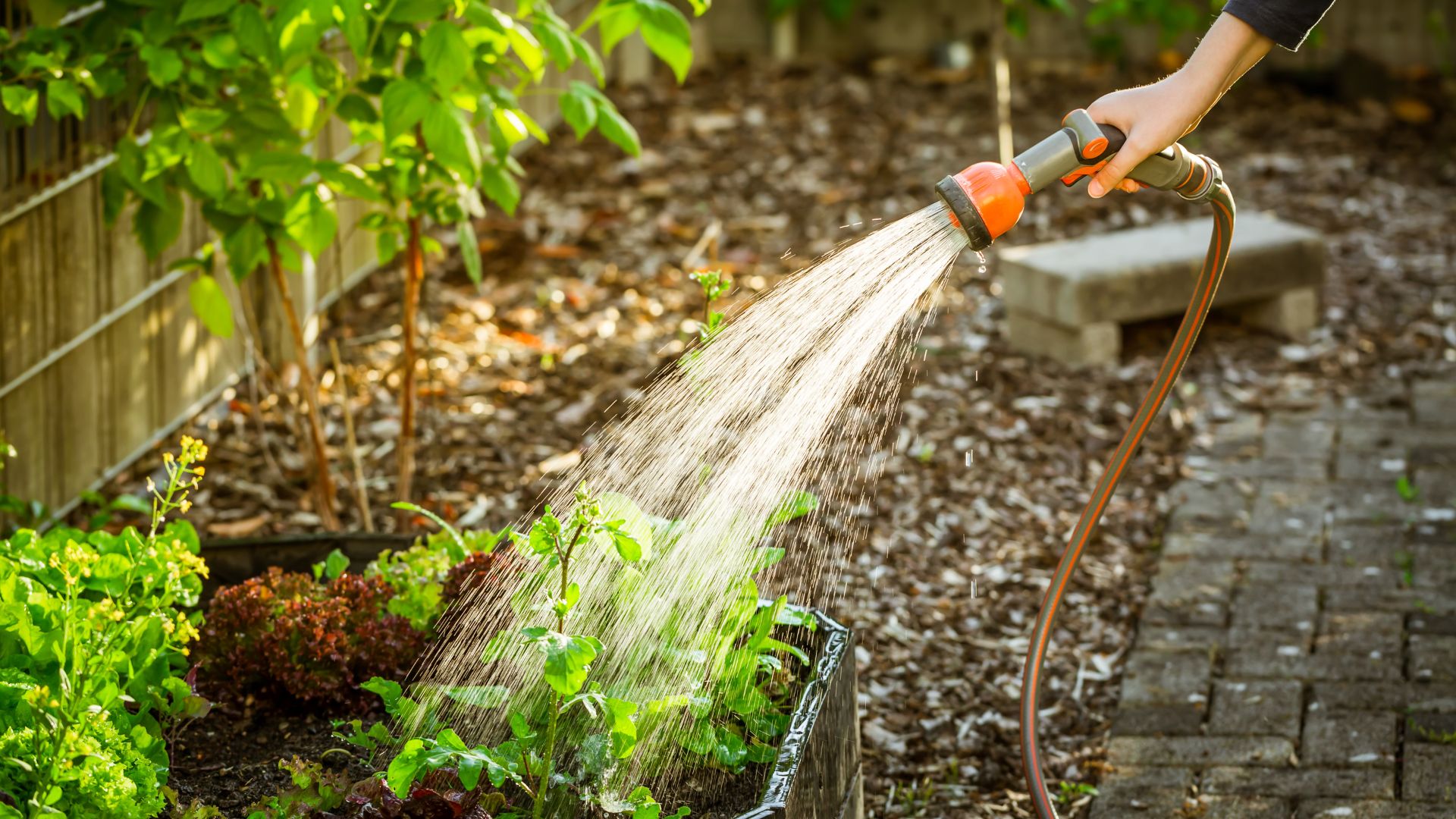How to use old towels in your garden - 5 ways to turn your rags into your plant's riches
Discover the genius ways you can use old towels in your garden to help both nurture and protect your plants


Are you tired of looking at that heap of old towels that cannot be used in the bathroom anymore and won't even help dry the dog off? Don't throw away them just yet, there are several ways you can repurpose them in your garden.
To champion the latest sustainable garden ideas, it's all about reusing everyday items, including using teabags in your garden. Repurposing old towels in the garden not only cuts costs but reduces the waste of purchasing new materials to do the jobs that your old towels are unexpectedly perfect for.
We spoke to gardening experts to unlock the smart ways to repurpose old tattered towels and give them a new purpose in the garden.
How to use old towels in your garden
When you start noticing the telltale signs that your towels need replacing, perhaps despite following expert advice to soften towels they just aren't delivering the same drying results, it's time to take them into the garden. Yes, you read that right.
"Repurposing old towels in your garden will grant you a greater degree of versatility and sustainability," says Russell Birchell, the founder of Hedging UK. "The towels' durability also enables them to be reused, reducing the need for disposable products that generate additional waste."
With that in mind here are five genius ways to use old towels to aid all garden trends...
1. Weed barriers

Are you constantly trying to find ways to get rid of weeds in your grass and pots? As the weather gets warmer trying to stay on top of the weeding can feel like a monumental task and one that no one really enjoys.
Sign up to our free daily email for the latest royal and entertainment news, interesting opinion, expert advice on styling and beauty trends, and no-nonsense guides to the health and wellness questions you want answered.
To make matters easier you can use your old towels as a weed barrier. Craig Morley, a gardening expert from Budget Seeds, says, "Instead of buying weedkillers or weed control membranes, you can use old towels instead. Cut them to size to fit the target area, and cover them with soil and mulch."
This method will prevent sunlight from reaching the soil where weeds would grow, but it will still allow your plants access to nutrients whilst keeping the soil moist.
2. Protect from frost
With the unreliable weather the UK throws at your garden, it can be hard to know the best way to protect your plants from frost. And yet your old towels may have just been the answer all along.
"I recommend using old towels to protect your plants from frost. This can be achieved by draping the old towels over any delicate plants during particularly cold nights," says Russell. "The towels act as insulators, retaining heat while shielding your plants from frost damage."

Russell has always had an interest in horticulture, right from the moment he built a polytunnel on his parent's farm when he was younger. From this, he went on to grow perennial plants and sell them to customers, until finally he went on to sell hedging plants and founded Hedging UK.
3. Drip feed potted plants

Now when you've worked tirelessly to grow some of the most alluring plants to liven up your garden, the last thing you want is them withering away when you go on holiday. Instead of having to pay a neighbour to care for your plants, you can use towels!
Russell recommends cutting your old towels into strips and dipping one end into a bucket of water, using a stone to weigh it down. "Then position the bucket of water so that it is above your plant, and then place the dry end of the towel strip into the plant's soil. As the towel strip is gradually soaked with water, it will slowly wick water down to your plant," he explains.
4. Knee pads
This towel tip doesn't have anything to do with how to care for plants, instead, it does have everything to do with how to care for your knees.
When you're busy planting the best plants every garden needs, your body can often take a bit of a beating and it isn't until you try to get up that you can feel the strain on your knees.
That's why Craig suggests bringing old towels into the garden to make the experience more comfortable, he says, "Although you can buy knee pads to use when you are gardening, you can easily make your own with old towels. Simply fold the towel over several times until you have reached the desired thickness required to support your knees."
However if you particularly struggle with joint pain, we love these knee pads from B&Q for £7 as you can wear them and not have to worry about moving around a singular pad from pot to pot.
5. Retaining plant moisture

This tip can be used on both outdoor and indoor plants, and similar to Craig's earlier point it's a great trick to use if you're going away on holiday.
"Placing a damp towel underneath your plant pot's drainage hole if you are going away can help the plant hold onto moisture," explains Craig. "Similarly, placing an old towel at the bottom of a pot before adding soil and a plant will help to retain moisture, reducing the frequency at which it needs to be watered."
If you're plant always seems to be on the drier side then using coffee grounds in your garden could be another way to give them a lending hand. After all, you don't want to be left wondering what happened to your bulb shoots.
FAQs
How do you make rags out of old towels for garden use?
It'll depend on the size of the towel you're looking to re-use as to how you can turn it into rags, some smaller hand towels can stay just as they are and they'll work perfectly as is. Larger towels on the other hand will need a little prep work.
Craig recommends, "If you have a large bath towel, cut this into smaller sections to make several rags that can be used around your garden. It may be beneficial to cut the towel into squares or rectangular shapes, but some people also find it helpful to cut them into thin strips."
Again, how you cut your towels will depend also on what you plan to use them for so it's a good idea to leave the cutting until you decide where you're using the rags.
Why are towels particularly helpful in the garden?
Similar to how you can use eggshells in your garden, towels are a versatile item that can be used in several different ways as you've seen above. The reason they're so helpful when it comes to the garden is because they so happen to have a similar textile make-up to many common garden products. Craig expands on this, "They can be used in the same way as many other products that you would otherwise buy, such as garden fleece or weed membranes."
Finding ways to reuse old materials you already have will save you a small fortune when gardening, not only this but it's a lot better for the environment too. So if you're into the rewilding trend and looking for a way to lower your CO2 footprint, old towels are a great idea to incorporate into your outdoor space.
And if these five useful tips weren't enough to sway you, Russell suggests using your old towels for the perfect reusable clean-up solution. Gardening is possibly one of the messiest jobs, so take full advantage of the towel's natural absorbency to mop up water spills or muddy splatters. No more disposable paper towels are needed.

Emily joined woman&home as a staff writer after finishing her MA in Magazine Journalism from City University in 2023. After writing various health and news content, she now specialises in lifestyle, covering unique cleaning hacks, gardening how-tos, and everything to help your houseplants thrive.